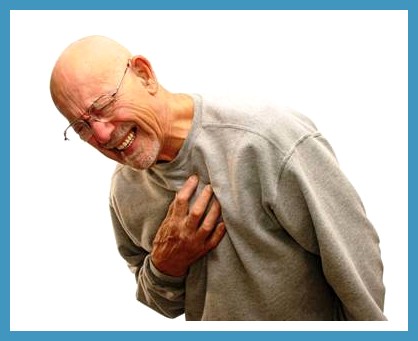What Triggers Heart Disease
Heart disease is a term loosely used to relate a number of medical conditions that
affect both the heart and blood vessels, which ultimately lead to impaired heart function.
 The following health issues are grouped under this generic term of "heart disease":
The following health issues are grouped under this generic term of "heart disease":
-
Coronary artery disease, this happens when one or more arteries that supply blood to the heart (called coronary arteries) become narrow or get blocked, and it is considered the leading cause of heart attack. The primary factor to of coronary artery disease is atherosclerosis, a medical situation where cholesterol builds up inside the blood vessels walls.
-
Heart arrhythmias, this happens when there is change in the rate or regularity of one’s heart beat. Heart arrhythmias comes in many forms, there are those that are mild and transitory in nature, while a number of them could be severe and sometimes life-threatening.
-
Heart failure, a medical condition which describes the situation when there is a failure on the part of the heart to pump sufficient blood to all our body’s organs, primarily through the dysfunction of cardiovascular system like heart valve defects, functional or structural abnormalities of the heart muscle and high blood pressure. If someone is born with heart muscle and valve dysfunctions, their condition is referred to as “congenital heart defects” generally.
-
Heart infections, these are invariably brought about by bacteria, viruses or parasites.
There is no clear guideline to distinguish one from another through the above classification, as it is commonly known that they are somehow inter-related. As illustration, it has been observed that both coronary artery disease and heart arrhythmias could lead to
heart failure, while heart failure and coronary artery disease are often the precludes of heart arrhythmias.
Heart disease symptoms to look out for
Regardless of the different manners of heart diseases, they all emit certain signals at the onset; these will have to be the symptoms to look out for so one knows when to approach hospitals or clinics for medical help. The most commonly observed symptoms are either one of the followings or in combination of one another; these are fainting, chest pain and short breathing. Other symptoms exhibited by patients are
weakness or fatigue,
persistent dry cough,
swelling in the legs,
feet and/or
abdomen and irregular heartbeat.
Thankfully, treatments for heart disease are available and chances of recovery are good (especially when one opts for early diagnosis). But invariably treatment options are subject to the type of heart disease one has. Some of these are included below:
- A
change in lifestyle, weight loss, switching to a low-fat low-salt diet plan, engage in daily physical activity which lasts at least 30 minutes and stick to it for at least 5 times a week, quit smoking and reduce alcohol intake.
-
Medications, as in accordance to the form of heart disease (low pressure lowering drugs, cholesterol lowering medications, anti-arrhythmic medicines, beta-blockers, vasodilators, anticoagulants and others).
-
Surgery or other medical procedures that effectively deal with heart dysfunctions.
- On top of the above approaches, it is prudent that you undergo
regular medical check-ups. They will be effective deterrents to serious complications, things like heart attack, stroke and sudden cardiac arrest, which are the main death contributors internationally.
Always invest into a proper international health insurance plan is recommended to protect yourself from such deadly illnesses, before the issue arises.




 The following health issues are grouped under this generic term of "heart disease":
The following health issues are grouped under this generic term of "heart disease":